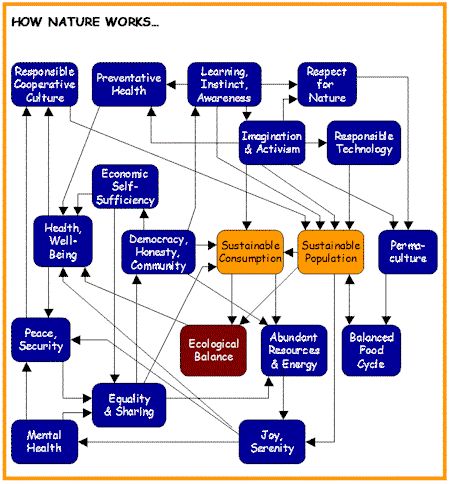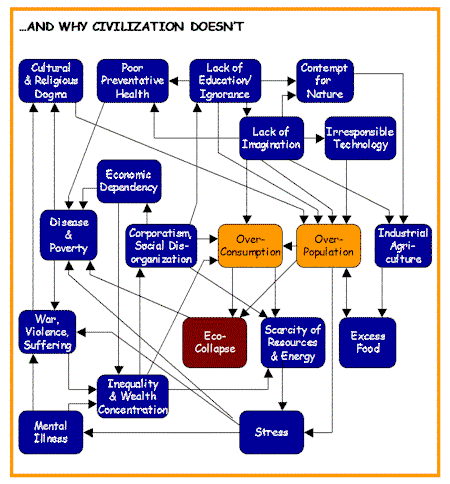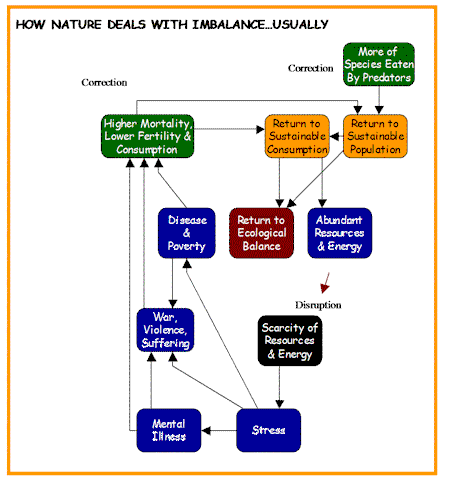  Pre-civilization and gatherer-hunter cultures have operated successfully for millennia without the concept of property — or what the Bushies hawked for the past eight years as “The Ownership Society”. The objective of such a society is to give you the feeling that you have been given something by the government/powers that be, namely land that belongs to all creatures of the planet, and that you should therefore be grateful, put your nose to the grindstone, and do what the government and your employer tell you. This is an enormous fraud. As all non-civilization cultures will tell you, we belong to the land, it does not belong to us. We have no “property rights” except to the extent we all agree (brainwashed idiots that we are) that we will accept this fraud as legitimate. Why and how did we get here? Partly because it was/is expedient for governments and the rich and powerful: If they throw us an ownership bone, then we forfeit the ability to criticize their theft of most of the Earth’s land and resources for their private use. It’s their means of co-opting us. Once we buy the basic fraud, then we also buy the nonsense that we should slave away all our lives to buy enough ‘property’ to be secure and happy, that everyone has the ‘right’ to do what they want with ‘their’ property (pollute it, sell it for speculative gain, acquire more of it cheap through bribery of politicians or extortion of the poor, weak and ignorant, and then flip it for an obscene profit, etc.), and that an economic system that is based on stealing property from others, from nature and from future generations, and ‘developing it’ (while externalizing all of the related costs), is somehow a ‘productive’ economy. The consequence has been the exhausted and unsustainable way of living depicted in the lower of the two charts above. If we had a world without property, it would work something like this:
Such a world would, of necessity, have a lot fewer people than our world. It would have a steady-state economy — zero growth. It would not have to worry about war, the End of Oil, the End of Water, or climate change, because resource use would be low and population self-limited to the carrying capacity of the land (so there would be no need to go to war for more land or resources). While there might well be short, violent inter-tribal skirmishes over the territory each ‘tribe’ belongs to, these would be brief and limited. Many of the modern problems that are related to over-population (epidemic diseases, chronic diseases, poverty, desertification and soil impoverishment, food insecurity and famine etc. etc.) would not occur. We would live long, healthy, peaceful, joyful lives, sustainably, following the natural process depicted in the top chart above. The problem, now, is that we can’t get there from here. Too much of our culture — our political, social, economic, health and educational systems for a start — are built on the rocky, crumbling foundation of human entitlement to unlimited population growth and unlimited use of and despoilment of the Earth’s resources. We can’t ‘go back’ from the new man-made systems depicted in the lower chart above, to the natural systems, depicted in the upper chart, that prevailed for virtually all of the millions of years of life on Earth prior to our modern civilization. Some neo-survivalists I know are hoping that our civilization culture collapses soon and fast, on the assumption that a better world would rise from its ashes. In the first place, that’s a dubious assumption. Many human civilizations have been built on the same faulty basis, and there is no evidence that we would learn from our mistakes and create a new civilization any better than the one that is killing us, and our planet, today. And the collapse will be truly ghastly, and will take decades if not centuries of enormous suffering and misery before it ends. Civilizational collapses have always been like that — the bigger they are, the harder they fall. Anyone wishing for an end of our civilization soon is ignorant of history, and willing to condemn future generations to horrors — horrors that our generation set in motion — with a barbaric ‘ends justify the means’ rationale (the kind of thinking that neocons use). Allowing our civilization to collapse, without doing anything, is unthinkable and cruel. Many of the new conservation and steady-state economy models prescribe something called a ‘energy descent‘ strategy. The idea is to toggle the ‘overconsumption’ box in yellow in the lower chart above to the ‘sustainable consumption’ box in the upper chart above, in such a way as it causally flips the entire lower chart to the upper chart, and, voila — we’re saved. Or, if we’re too late to do so, at least the collapse is made much more bearable. The energy descent strategy is described by the Transition movement as: A scenario in which humanity has successfully adapted to the declining net energy availability [and perhaps climate change impacts] and has become more localised and self-reliant. It is a term favoured by people looking towards energy peak as an opportunity for positive change rather than an inevitable disaster.
Well, maybe. This suggests an adaptive strategy rather than a proactive one, that we can’t change human behaviour (excessive consumption) globally, so instead we can adapt to the consequences of our global excess locally, so when the global civilization collapses, the pockets of Transition Towns will survive. It’s an interesting approach, and one that appeals to idealism (and perhaps selfish survivalism) sufficiently to have spurned hundreds of such Transition movements, vaguely coordinated. These Transition Towns aren’t willing to give up property ownership, trade, imported technology or any of the other trappings of the Industrial Growth Economy that they don’t see any need to jettison. But, like the toxic financial assets that are bringing down the global financial system (and perhaps with it, the Obama administration), these trappings of the economy and civilization that have produced the lower chart above, will, if retained, sooner or later lead to its re-establishment. We can’t have our cake and eat it too. The only way to rid ourselves of our toxic addiction to overpopulation and overpopulation is to go ‘cold turkey’ — to give up on our civilization entirely and create a new society, self-managed, self-sufficient, independent in all respects (including belief systems) from civilization culture. If you know any addicts, you know how hard this is to do, the low probability of success, the high rate of relapse, and the terrible damage the transition to a healthier, unaddicted way of life can inflict on everyone connected to the addict. Transition Towns will have to go ‘cold turkey’ on their addiction not only to oil, but to imported goods, many modern technologies (including medicines) that rely on the unsustainable Industrial Growth Economy, the concept of ‘property’, and lots more. Breaking the cycle of a hundred addictions all at once. Not easy. Methadone please. The following chart shows the way nature generally deals with species whose populations and resource consumption get out of hand: This is not doomsaying or fear-mongering — this has all happened before, often. The latest of many cycles of desperate human cannibalism is barely a century past. How well will these Transition communities fare when all this is going on all around them? That’s not to say I am opposed to the Transition movement. I think it will provide a valuable model for the disintegrated society that is left behind after civilization collapses, to study and consider in starting again. I think its self-sufficiency and moderation and collaboration will be perceived very positively by those who bear the scars of a civilization that crashed because of fragility and dependence and excess and greed and disconnection. But it will be the idea, not the movement, that survives. My hope is that that idea will include the belief that we belong to the land, and not it to us. And that by living light and responsibly on the land, we can live, as humans did before ‘civilizations’, for a million years, in balance, in joy, in connection with all life on Earth. We can live, essentially, as the ancient myths of pre-civilization cultures tell us, forever. Category: Why Our Civilization is Unsustainable
|






this is accuracy at its best!sacrifice of the many for the whims of the few have no place in nature.
I am not in favour of promulgating the idea it can’t be done. In fact, it COULD be done. As every addict recovering will tell you. The earth can support two billion with no oil. We have nearly 7 billion people now. But we also have half of the world’s endowment of oil, and maybe coal and gas left.Here, Dave, you have a role to play I believe, and you can play it from the comfort of your sweet spot located away from urban civilisation. The first step of a recovering addict would sound, maybe, like this:I came to realise that I could not alone free myself of this addiction, that was affecting, so badly, my life, my family, my friends and even coming generations.There you go! helping people come to the realisation. Please. You are GOOD at it, in fact, one of the best on the planet.I beg you not to use your writing talents to explain why it is not going to happen. That is just too easy, anyone can do that.It takes a true genius to help people to step one and on to step two.THAT is true transition!/your friend
You say: “The only way to rid ourselves of our toxic addiction to overpopulation and overpopulation is to go ‘cold turkey’ — to give up on our civilization entirely and create a new society, self-managed, self-sufficient, independent in all respects (including belief systems) from civilization culture.”This is impossible, especially the belief system aspect. Furthermore, it’s not necessary. The Transition (that the Transition Towns movement is working toward) is not going to happen “cold turkey.” It’s going to happen in fits and starts, filled with internal contradictions, confusion, chaos and ambiguity. A lot in some places and very little in others. And so on.